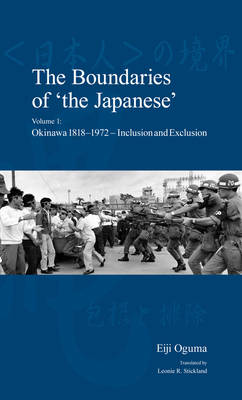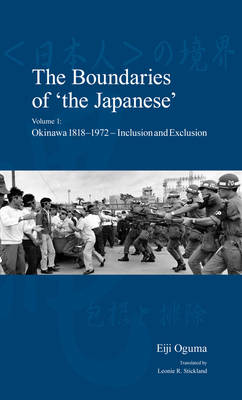
Door een staking bij bpost kan je online bestelling op dit moment iets langer onderweg zijn dan voorzien. Dringend iets nodig? Onze winkels ontvangen jou met open armen!
- Afhalen na 1 uur in een winkel met voorraad
- Gratis thuislevering in België vanaf € 30
- Ruim aanbod met 7 miljoen producten
Door een staking bij bpost kan je online bestelling op dit moment iets langer onderweg zijn dan voorzien. Dringend iets nodig? Onze winkels ontvangen jou met open armen!
- Afhalen na 1 uur in een winkel met voorraad
- Gratis thuislevering in België vanaf € 30
- Ruim aanbod met 7 miljoen producten
Zoeken
€ 93,95
+ 187 punten
Uitvoering
Omschrijving
The dynamics of inclusion and exclusion have operated for centuries in the island chain that constitutes Japan's southernmost prefecture, Okinawa - otherwise known as the Ryukyu Islands. Are the people of Okinawa 'Japanese' or not 'Japanese'? Answers to this puzzling question are explored in this richly-detailed volume, written by one of Japan's foremost public intellectuals, historical sociologist Eiji Oguma. Here, Oguma addresses issues of Okinawan sovereignty and its people's changing historical, cultural, and linguistic identity, over more than 150 years until its 1972 reversion to Japanese control, following its administration by the US from the end of the Pacific War. (Series: Japanese Society) [Subject: Sociology, Cultural Anthropology, Asian Studies, Japanese Studies, Cultural Studies, History]
Specificaties
Betrokkenen
- Auteur(s):
- Uitgeverij:
Inhoud
- Aantal bladzijden:
- 430
- Taal:
- Engels
- Reeks:
Eigenschappen
- Productcode (EAN):
- 9781920901486
- Verschijningsdatum:
- 1/04/2014
- Uitvoering:
- Hardcover
- Formaat:
- Genaaid
- Afmetingen:
- 140 mm x 216 mm
- Gewicht:
- 716 g

Alleen bij Standaard Boekhandel
+ 187 punten op je klantenkaart van Standaard Boekhandel
Beoordelingen
We publiceren alleen reviews die voldoen aan de voorwaarden voor reviews. Bekijk onze voorwaarden voor reviews.











